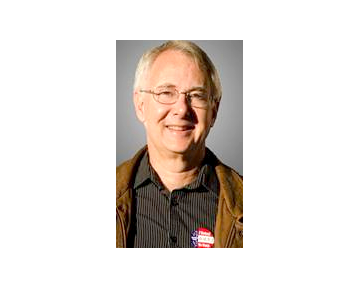
BY MARK OLBERT
Earlier this year I became San Carlos’ representative on the Silicon Valley Clean Water commission. SVCW operates the sanitary waste treatment system serving Belmont, San Carlos, Redwood City, Menlo Park, Atherton, Portola Valley, and areas of East Palo Alto, Woodside and unincorporated San Mateo and Santa Clara Counties. Its annual operating budget is about $45 million, almost all of which is funded by sewer fees paid by residents and businesses. It also has a critical $850 million upgrade and infrastructure enhancement program underway.
As a commissioner, I’ve recently been struggling with issues related to how open the agency is about certain matters, triggered by Dave Price’s column July 29 regarding a legal settlement the commission recently approved. Maximizing public transparency — which I strongly support — is a bedrock principle of California law, and very much in the public interest. But that same law gives public agencies room to negotiate settlements privately.
Imagine what would happen if anyone suing an agency could hear their debate about tactics and strategy, as would happen if those discussions were held in public. It would hamstring the agency’s ability to negotiate, likely leading to worse outcomes. Avoiding that is also in the public interest.
Striking a balance
Like most things in government, a reasonable balance must be struck. But where is that balancing point?
California law appears to allow (I’m not a lawyer or a judge) public agencies to approve the expenditure of funds in closed session if they make a proposal to a counter-party who later accepts it. Details about the approval are generally a matter of public record … but those details must be requested by a member of the public. In the language of the law, they are released only “upon inquiry” — i.e., if anyone thinks to ask.
I just learned this, and it came as quite a shock. It is a degree of flexibility which I believe agencies should utilize rarely, if ever. I am much more comfortable with the model used by the San Carlos City Council, on which I serve: while some details about a transaction may be kept confidential, the expenditure itself is voted on in public.
Under this model voters are at least aware of how much public money is being spent, and for what purpose. Among other things this allows the public to comment on the transaction and stay on top of what their government is doing.
San Carlos’ approach so closely aligns with the principles of open government enshrined in California law that I assumed, incorrectly, it was required. It’s not; it’s a choice in some situations. But it’s one I believe voters should require their agencies to make, because the approach San Carlos uses better protects the public’s right to know.
A different approach
The approach was not used by SVCW in the matter Dave wrote about. Had it been, understandable public concerns might’ve been mitigated, because it’s not possible to act on such an item in public without saying something about the reason for spending the money.
Acting in public would also serve the personal interests of elected officials (not that that does or should matter). If you don’t choose to keep the public aware of at least the broad outlines of public expenditures, but the public is entitled to the information upon request, you are always going to be subject to questions about why you chose to be less open on one item versus another. Being more open consistently makes you less subject to charges of trying to mislead the public or to conceal potentially controversial government conduct.
It also helps to reduce the potential for friction among elected officials working together with agency staff to serve the public interest. That’s something I’ve experienced a lot recently as I find myself trying to figure out how to convince my SVCW colleagues there’s a better way and that we should adopt it.
Ultimately, I’d rather be working to keep our sanitary sewers working properly. It may not sound like much of a job, but it’s a critical part of our infrastructure. But so is maintaining transparency and accountability in government.
Mark Olbert serves on the San Carlos City Council and the Silicon Valley Clean Water Commission. The opinions and views expressed here are his own, and do not necessarily represent those of the city of San Carlos, its City Council, Silicon Valley Clean Water or its commission.


